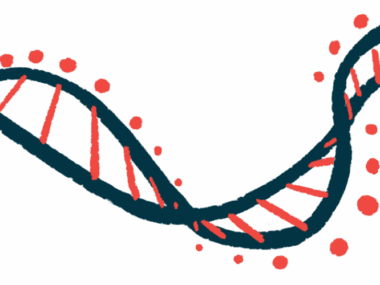Juvena’s JUV-161 named FDA orphan drug for DM1
Clinical trials expected this year following positive data from animal models
Written by |

The U.S. Food and Drug Administration (FDA) has given orphan drug designation to JUV-161, Juvena Therapeutics’ lead treatment candidate for myotonic dystrophy type 1 (DM1).
Orphan drug status is designed to encourage the development of therapies for rare diseases, or those affecting fewer than 200,000 people in the U.S. It provides benefits such as seven years of market exclusivity if the treatment is ultimately approved and exemption from FDA fees.
According to Juvena, JUV-161 has been shown to work against muscle wasting and to restore muscle fiber formation, while boosting strength and improving metabolism in multiple animal models. The first clinical trials are expected this year.
“People living with DM1 deserve safe, effective, and rejuvenating treatments that can repair and restore tissue health to improve muscle function and metabolism,” Hanadie Yousef, PhD, co-founder and CEO of Juvena, said in a company press release. “As we advance Juvena’s first biologic initially focused on the treatment of DM1, we look forward to exploring potential treatments for an entire class of disorders that remain major unmet medical needs.”
Biologic therapies, or biologics, are products derived in some way from living organisms. JUV-161 leads Juvena’s development pipeline for multiple myopathies and metabolic diseases.
Myotonic dystrophy type 1 is most common adult-onset form of the disease
DM1, the most common form of adult-onset muscular dystrophy, is characterized mainly by progressive muscle weakness and by the muscles’ inability to relax after they contract (myotonia).
Juvena’s proprietary JuvNet platform combines a library of stem-cell-secreted proteins and artificial intelligence to query thousands of secreted proteins for those with a regenerative potential.
JUV-161, which includes a lab-made, human insulin-like growth factor 2 (IGF-2) protein, is injected under the skin, or subcutaneously. IGF-2 is a protein hormone that regulates several cellular processes, such as growth, migration, and survival.
“FDA-approved biologics based on secreted proteins such as insulin, human growth hormone, and erythropoietin, can have life-changing impacts; however, the massive search power needed to systematically map this complex class of proteins has challenged the industry’s ability to continue discovering proteins that reverse disease in humans,” said Jeremy O’Connell, PhD, co-founder and chief scientific officer at Juvena.
“We are thrilled with the recognition of our lead candidate, JUV-161, as a potential addition to this class of drugs, and the success of Juvena’s platform in revolutionizing the study of secreted proteins as therapeutics,” O’Connell added.
In its drug development endeavors for DM1, Juvena works with the Myotonic Dystrophy Foundation to help bring tangible clinical benefits to patients.
“Until treatments are available, DM1 will continue to progressively limit individuals’ strength and their ability to do everyday things like walking, talking, swallowing, and even breathing,” said Tanya Stevenson, CEO of the foundation. “We are excited about the unique approach Juvena Therapeutics is advancing because of its potential to safely promote muscle regeneration, improve metabolism, rejuvenate lives, and ultimately to more holistically address the disease.”






